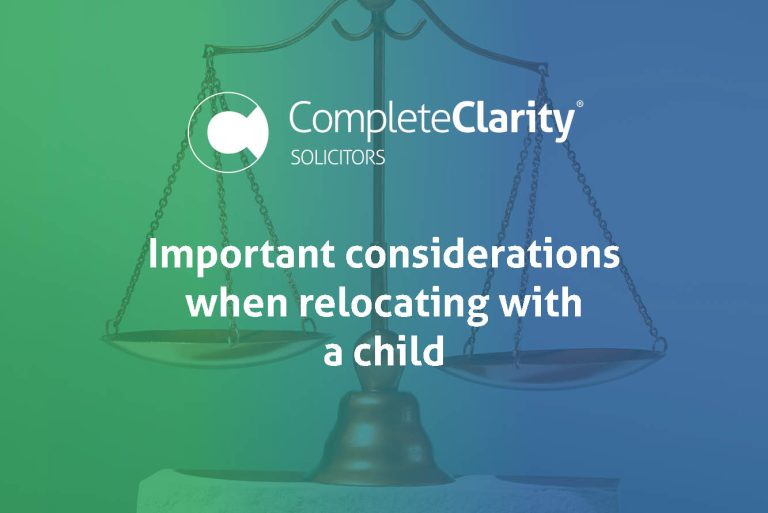Divorce can be a stressful process, but in Scotland, the legal system offers a few different pathways to help streamline it. Depending on your circumstances, you may qualify for either an ordinary divorce or a simplified divorce. But how do you know which is right for you? And when should you consider hiring a solicitor to help?
In this guide, we’ll break down the main differences between the two types of divorce in Scotland, how solicitors fit into the process, and what you need to know to make things as smooth as possible.
What is an Ordinary Divorce in Scotland?
An ordinary divorce is the most common form of divorce in Scotland. It is typically used when there are more complex issues at play, such as disputes over finances, child custody, or property division. This process tends to be more involved and can take longer, especially if both parties don’t agree on the terms of the separation.
Key aspects of ordinary divorce:
- Child custody disputes: If you and your partner cannot agree on how to care for your children post-divorce, an ordinary divorce is required.
- Financial disagreements: Any disputes over shared assets, such as property, savings, or debts, also necessitate an ordinary divorce.
- Legal support: Due to the complexity, you’ll likely need a solicitor to guide you through the process and represent your interests.
Ordinary divorces require a more formal court process, which includes multiple hearings and often the involvement of legal professionals to negotiate and settle disputes.
What is a Simplified Divorce?
On the other hand, a simplified divorce is exactly what it sounds like—a more straightforward and faster process. In Scotland, this route is only available if both parties agree on all the terms of the separation and there are no complications involving children under the age of 16 or major financial disputes.
Who qualifies for a simplified divorce?
- You’ve been separated for at least one year, and both parties agree to the divorce.
- There are no children under the age of 16.
- There are no financial disputes or shared property issues.
If all these conditions apply, the simplified process can save time and money, often not requiring a solicitor. However, many still seek legal advice to ensure the paperwork is correctly filled out and nothing is overlooked.
Do You Need a Solicitor for Divorce in Scotland?
For a simplified divorce, a solicitor may not be necessary, but having one can provide peace of mind, ensuring everything is properly handled. The more complex your divorce, the more likely you are to benefit from having professional legal representation. Here’s why:
- Navigating legal jargon: Divorce law can be complicated. A solicitor can help you understand your rights, responsibilities, and the legal process.
- Child custody and financial disputes: If you and your spouse are at odds over these issues, a solicitor will negotiate on your behalf and aim for the best outcome for you.
- Avoiding mistakes: A solicitor will ensure all the necessary documents are filed correctly, minimizing the risk of delays or problems in court.
- Reducing stress: Going through a divorce is tough enough without worrying about the legal side of things. Having a solicitor manage the paperwork, court hearings, and negotiations can significantly reduce your stress.
In many cases, your solicitor will also guide you on whether mediation or arbitration is an option to avoid going to court, which could save you time and money.
The Legal Grounds for Divorce in Scotland
In Scotland, there are specific legal grounds for divorce. Regardless of whether you’re pursuing an ordinary or simplified divorce, you’ll need to prove one of the following:
- Unreasonable behaviour: One party has acted in a way that makes it unreasonable for the other to continue living with them. This could include things like abuse, addiction, or infidelity.
- Adultery: If one party has committed adultery, this can be grounds for divorce, provided there’s evidence to support the claim.
- One-year separation with consent: If you and your spouse have been living apart for at least one year and both agree to the divorce, this is a valid ground.
- Two-year separation without consent: If you’ve been separated for two years, you can apply for a divorce even if your spouse doesn’t agree.
Steps to Begin a Divorce in Scotland
If you’re considering divorce, here’s a quick overview of the steps to get started:
- Decide on the type of divorce: Based on your situation (children, finances, and whether both parties agree), you’ll need to decide between an ordinary or simplified divorce.
- Consult a solicitor: Even if you qualify for a simplified divorce, it’s a good idea to consult with a solicitor to ensure you understand the process and avoid potential pitfalls.
- File the necessary paperwork: For a simplified divorce, you can file the paperwork yourself if you choose. For an ordinary divorce, your solicitor will handle the filing.
- Attend court (if required): If you’re going through an ordinary divorce, you may need to attend court hearings, especially if there are disputes to resolve.
- Receive the decree of divorce: Once the court is satisfied that all legal grounds have been met, they will issue a divorce decree, officially ending your marriage.
How Solicitors Can Simplify the Process
It might seem tempting to handle everything on your own, especially if you’re eligible for a simplified divorce, but here’s how a solicitor can truly simplify the process:
- Personalized advice: Every divorce is different, and a solicitor will tailor their advice to your specific situation.
- Negotiation and mediation: If you and your spouse are struggling to agree on certain issues, a solicitor can step in to negotiate on your behalf.
- Paperwork and deadlines: Missing a deadline or filing incorrect paperwork can cause delays, and a solicitor ensures that doesn’t happen.
- Court representation: In an ordinary divorce, it’s almost essential to have a solicitor represent you in court, ensuring your interests are protected.
FAQs About Divorce in Scotland
1. How long does a divorce take in Scotland?
A simplified divorce can take as little as 6-8 weeks. Ordinary divorces, especially those with disputes, can take several months or even years to conclude.
2. Can I get divorced without my spouse’s consent?
Yes, if you’ve been separated for at least two years, you can apply for a divorce without your spouse’s consent.
3. How much does a solicitor cost for divorce in Scotland?
Fees vary depending on the complexity of the case and the solicitor you hire. For a simple divorce, costs might range from £300 to £600, but an ordinary divorce could cost significantly more if there are disputes involved.







